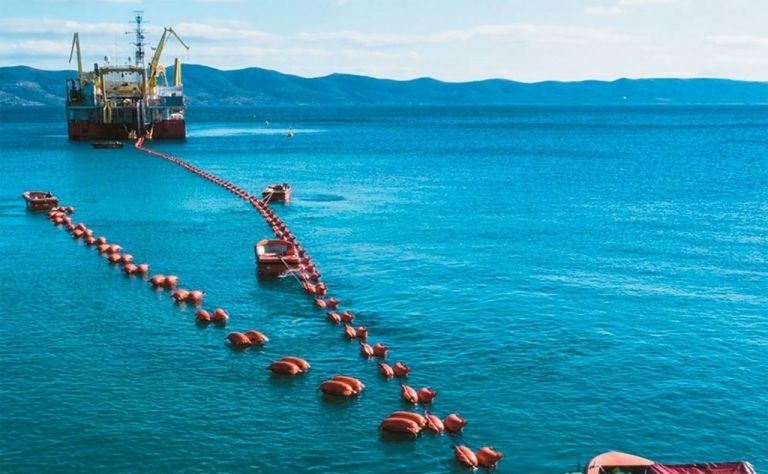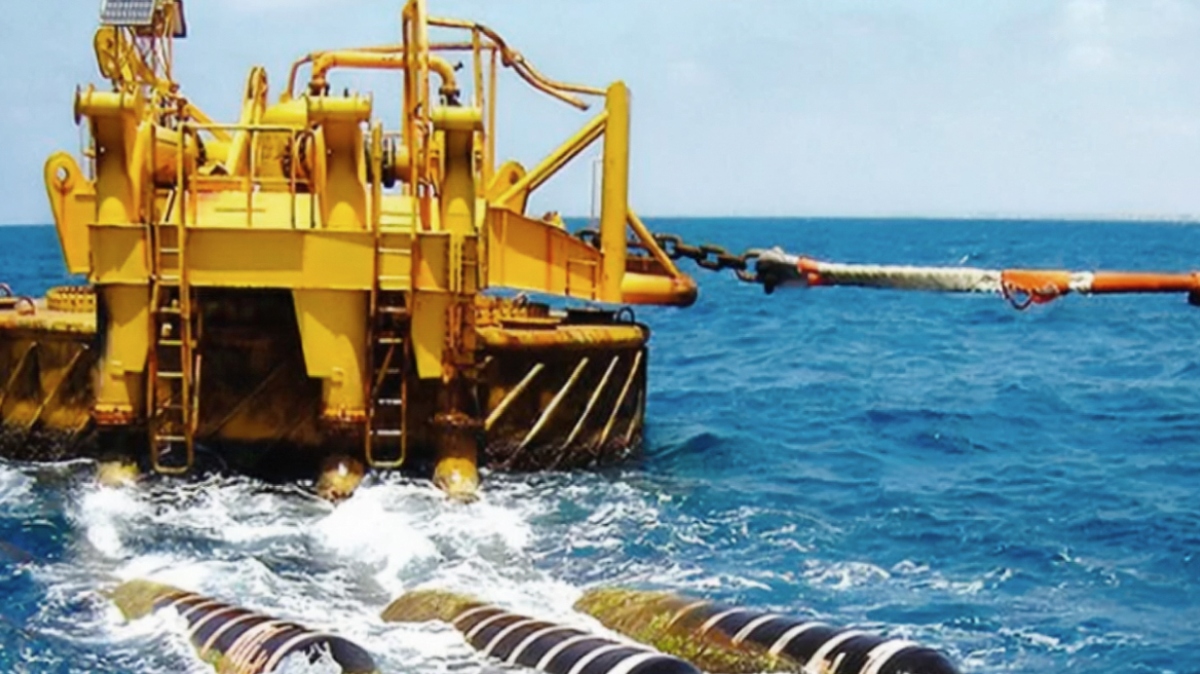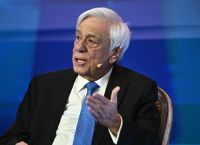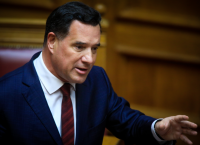Israel Reaffirms Support for the Great Sea Interconnector

Πηγή Φωτογραφίας: AP Photo//Israel Reaffirms Support for the Great Sea Interconnector
Israel announced on Friday, August 5, its firm commitment to the Great Sea Interconnector – a major subsea electricity cable designed to link the power grids of Israel, Cyprus, and Greece and connect them directly to the European energy market.
The project, partly funded with €657 million from the European Commission, is considered a flagship component of the EU’s energy strategy, aimed at boosting energy security, grid resilience, and diversification away from Russian sources.
Shock from Nicosia – Cyprus calls for renegotiation
In a surprising development earlier this week, Cyprus questioned the economic viability of the project “under current terms,” calling for a renegotiation of the agreement.
President Nikos Christodoulides also revealed that the European Public Prosecutor’s Office (EPPO) has launched an official investigation into the project’s financial management.
The comments sparked a strong reaction from Greece, which urged Nicosia to clarify its position and maintained that it has fulfilled all commitments under the trilateral agreement.

The European Commission, seeking to calm the waters, issued a statement urging all parties to ensure the continuation and success of the project, highlighting its importance for EU energy unity and strategic autonomy.
Israel: “We remain fully committed to the project”
When asked to respond to Cyprus’ concerns, Israel’s Ministry of Energy and Infrastructure told Euractiv via email:
“Israel remains committed to the project and continues to closely cooperate with all relevant stakeholders.”
The ministry added that a joint evaluation process is currently underway among the project participants to assess the next steps and ensure effective progress.
For Israel, the Great Sea Interconnector represents the first physical electricity link to the European grid, enabling both energy exports and imports, while reinforcing its role as an energy hub in the Eastern Mediterranean.
A technically ambitious project with global implications
The €1.9 billion infrastructure aims to create one of the longest and deepest undersea electricity connections in the world. Stretching approximately 1,208 kilometers and descending to depths of up to 3,000 meters, the interconnector is set to transform the Eastern Mediterranean into a strategic energy corridor between the Middle East and Europe.
Geostrategic Analysis: Energy Diplomacy at a Crossroads
Beyond technical specifications, the Great Sea Interconnector is a geostrategic game-changer in the region, with far-reaching implications across three key dimensions:
1. Israel’s Strategic Leap – From Energy Island to Regional Connector
The project offers Israel an unprecedented opportunity to:
- Secure energy independence and flexibility,
- Gain direct access to EU markets,
- Enhance its geopolitical influence as a stable partner in the region.
By committing publicly to the project amidst uncertainty, Israel signals that it views energy infrastructure as central to its long-term national security and foreign policy strategy.
2. Cyprus–Greece Friction – Tactical Disagreement or Strategic Risk?
The recent divergence between Cyprus and Greece could undermine the cohesion of their long-standing trilateral alliance with Israel.
- Cyprus’ sudden shift raises questions over its internal decision-making and credibility within EU-funded initiatives.
- Greece’s firm stance underscores the need to preserve regional stability and its role as an energy gateway to Europe.
If left unresolved, this dispute could open the door for third-party actors (notably Turkey) to reassert influence in the region’s energy dynamics.
3. The European Union – Stress Test for Energy Autonomy
For the EU, the Great Sea Interconnector is not just an energy project — it’s a strategic instrument for:
- Diversifying supply routes,
- Integrating renewable energy from Eastern Mediterranean sources,
- Strengthening geopolitical presence in a volatile yet critical neighborhood.
The success (or failure) of the project will signal the EU’s ability to coordinate large-scale infrastructure in politically sensitive regions, especially in the aftermath of the war in Ukraine.
Strategic Infrastructure or Missed Opportunity?
The Great Sea Interconnector is more than a subsea cable. It is a symbol of regional cooperation, energy sovereignty, and strategic alignment between Europe and the Eastern Mediterranean.
If successfully implemented, the project could:
- Anchor Israel, Cyprus, and Greece as central pillars in the EU’s energy architecture,
- Empower the green transition with secure cross-border power flows,
- Undermine efforts by authoritarian regimes to dominate energy corridors.
However, internal disagreements, legal complications, and bureaucratic inertia risk turning this strategic vision into a missed opportunity.
The next few months will be decisive. The Great Sea Interconnector is not just about cables and current – it’s about political will, diplomatic maturity, and shared strategic vision.
Will Israel, Cyprus, and Greece rise to the challenge? Or will the EU have to look elsewhere to fulfill its energy sovereignty ambitions?
Source: pagenews.gr
Διαβάστε όλες τις τελευταίες Ειδήσεις από την Ελλάδα και τον Κόσμο






Το σχόλιο σας